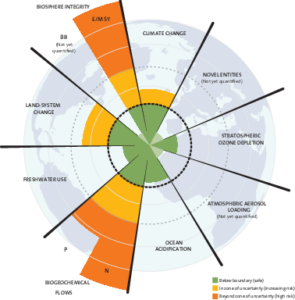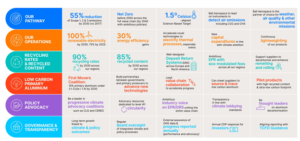
2024 kicked off with new regulations and frameworks that will shape sustainable finance strategy, including new mandates for assurance of ESG reports, continued incentives for funding the clean energy transition, and improved guidance for measuring the impact of natural capital.
Here are other recent developments that will set the tone this year — from brewing controversy over diversity, equity and inclusion strategy to anticipated investments in ESG software to more citizen lawsuits over ineffective climate regulations.
Nasdaq’s rules on diverse board representation are official. The stock exchange requires listed companies to have at least one board member that is a woman, underrepresented minority or LGBTQ+ representative as part of a rule that took effect Dec. 31. Companies that don’t pass muster will need to explain why. Nasdaq will require companies to have at least two diverse board members by Dec. 31, 2025. Even though the new mandate has already survived legal challenges, it faces headwinds as conservative groups ramp up legal challenges to DEI initiatives.
Green debt is paying off. The world’s biggest banks made $3 billion last year by arranging financing for deals and projects marked as environmentally friendly — more than they did for underwriting oil and gas projects, according to Bloomberg data (subscription required). Two European banks, BNP Paribas and Credit Agricole, held the top spots for fees earned from green finance work. Bank of America was first among U.S. banks and came in fifth globally. Collectively, banks helped raise $583 billion in green debt in 2023, but they will need to increase that amount to meet the goals of the Paris Agreement, Bloomberg found.
Start collecting data for the EU’s new corporate reporting mandate. The European Union’s Corporate Sustainability Reporting Directive went into effect Jan. 1 for EU-incorporated companies subject to the Non-Financial Reporting Directive. CSRD requires companies to report under the principle of "double materiality," which means they must disclose their impacts related to relevant environmental, social and governance issues, as well as how climate change could affect future operations. U.S.-based companies aren’t exempt in the long term. By 2028, companies with a significant presence in the EU, but with a parent company based outside the EU, will need to report on these issues across all operating companies and divisions — including those outside the bloc.
Make room in your IT budget for ESG reporting software. Deloitte predicts 2024 will be a tipping point, as multiple ESG regulations take effect and others are introduced. Regulations requiring third-party assurances will drive companies to automate what has traditionally been a very manual process. Deloitte predicts the market for ESG reporting software will surpass $1 billion, a growth of more than 30 percent from the previous year, and InsightAce Analytic forecasts the category will reach $2.25 billion by 2027.
Brace for more climate-related lawsuits. In December, a 14-year-old plaintiff filed a lawsuit against California’s Environmental Protection Agency and its administrator for an alleged failure to regulate greenhouse gas emissions known to cause harm to children’s health and welfare. The lawsuit is similar to one brought against the state of Montana, in which a judge ruled the state must consider the effects of climate change when making decisions to start or renew fossil fuels projects. Expect young climate leaders to advance climate justice as they come into voting age and enter the workforce. Gen Z has already shown it is willing to turn down job offers if a potential employer isn’t committed to addressing the climate crisis.
- SEO Powered Content & PR Distribution. Get Amplified Today.
- PlatoData.Network Vertical Generative Ai. Empower Yourself. Access Here.
- PlatoAiStream. Web3 Intelligence. Knowledge Amplified. Access Here.
- PlatoESG. Carbon, CleanTech, Energy, Environment, Solar, Waste Management. Access Here.
- PlatoHealth. Biotech and Clinical Trials Intelligence. Access Here.
- Source: https://www.greenbiz.com/article/whats-esg-dei-mandates-green-debt-profits-esg-software-boom-ahead
- :has
- :is
- $1 billion
- $3
- $UP
- 14-year-old
- 2023
- 2024
- 2025
- 2028
- 25
- 30
- 31
- a
- across
- addressing
- affect
- against
- age
- agency
- Agreement
- ahead
- All
- alleged
- already
- america
- among
- amount
- an
- and
- Anticipated
- ARE
- AS
- assurance
- At
- automate
- Bank
- Bank of America
- Banks
- based
- BE
- been
- Biggest
- Billion
- bloc
- Bloomberg
- bnp
- bnp paribas
- board
- board member
- boom
- brought
- budget
- but
- by
- came
- capital
- Category
- Cause
- challenges
- change
- citizen
- clean
- clean energy
- Climate
- Climate change
- climate crisis
- CNET
- Collecting
- collectively
- come
- committed
- Companies
- company
- conservative
- Consider
- continued
- controversy
- Corporate
- could
- credit
- crisis
- data
- Deals
- Debt
- dec
- December
- decisions
- dei
- deloitte
- developments
- DID
- Disclose
- diverse
- Diversity
- Dont
- double
- down
- drive
- earned
- effect
- effects
- Emissions
- energy
- Enter
- environmental
- Environmental Protection Agency
- environmentally
- environmentally friendly
- equity
- ESG
- Ether (ETH)
- EU
- European
- Even
- exchange
- exempt
- expect
- Explain
- faces
- Failure
- Fees
- fifth
- finance
- financing
- First
- For
- forecasts
- fossil
- fossil fuels
- found
- frameworks
- friendly
- from
- fuels
- funding
- future
- GAS
- Gen
- Gen Z
- Globally
- Goals
- governance
- Green
- Green Finance
- greenhouse gas
- Greenhouse gas emissions
- Group’s
- Growth
- guidance
- harm
- Have
- headwinds
- Health
- Held
- helped
- How
- HTML
- HTTPS
- if
- Impact
- Impacts
- improved
- in
- Incentives
- Including
- inclusion
- Increase
- initiatives
- into
- introduced
- Investments
- issues
- IT
- ITS
- Jan
- Job
- judge
- known
- Last
- Last Year
- lawsuit
- Lawsuits
- leaders
- least
- Legal
- Listed
- Long
- made
- Making
- mandate
- mandates
- manual
- marked
- Market
- means
- measuring
- Meet
- member
- Members
- minority
- more
- multiple
- must
- Nasdaq
- Natural
- Need
- New
- of
- off
- official
- Oil
- Oil and Gas
- on
- ONE
- operating
- Operations
- or
- Other
- Others
- outside
- over
- parent company
- paribas
- paris
- Paris Agreement
- part
- pass
- paying
- percent
- plato
- Plato Data Intelligence
- PlatoData
- Point
- potential
- Predicts
- presence
- previous
- principle
- process
- profits
- projects
- protection
- raise
- Ramp
- reach
- recent
- Regulate
- regulations
- related
- relevant
- report
- Reporting
- Reports
- representation
- representative
- require
- required
- requires
- Room
- Rule
- ruled
- rules
- s
- set
- Shape
- shown
- significant
- similar
- Skadden
- Social
- Software
- spots
- start
- State
- stock
- Stock Exchange
- Strategy
- subject
- subscription
- surpass
- Survived
- Sustainability
- sustainable
- Take
- term
- than
- that
- The
- The State
- their
- These
- they
- third-party
- this
- this year
- those
- though?
- Tipping
- Tipping point
- to
- TONE
- took
- top
- traditionally
- transition
- two
- u.s.
- under
- underrepresented
- underwriting
- very
- Voting
- was
- Welfare
- WELL
- What
- when
- which
- why
- will
- willing
- with
- woman
- Work
- Workforce
- world’s
- year
- young
- Your
- zephyrnet






